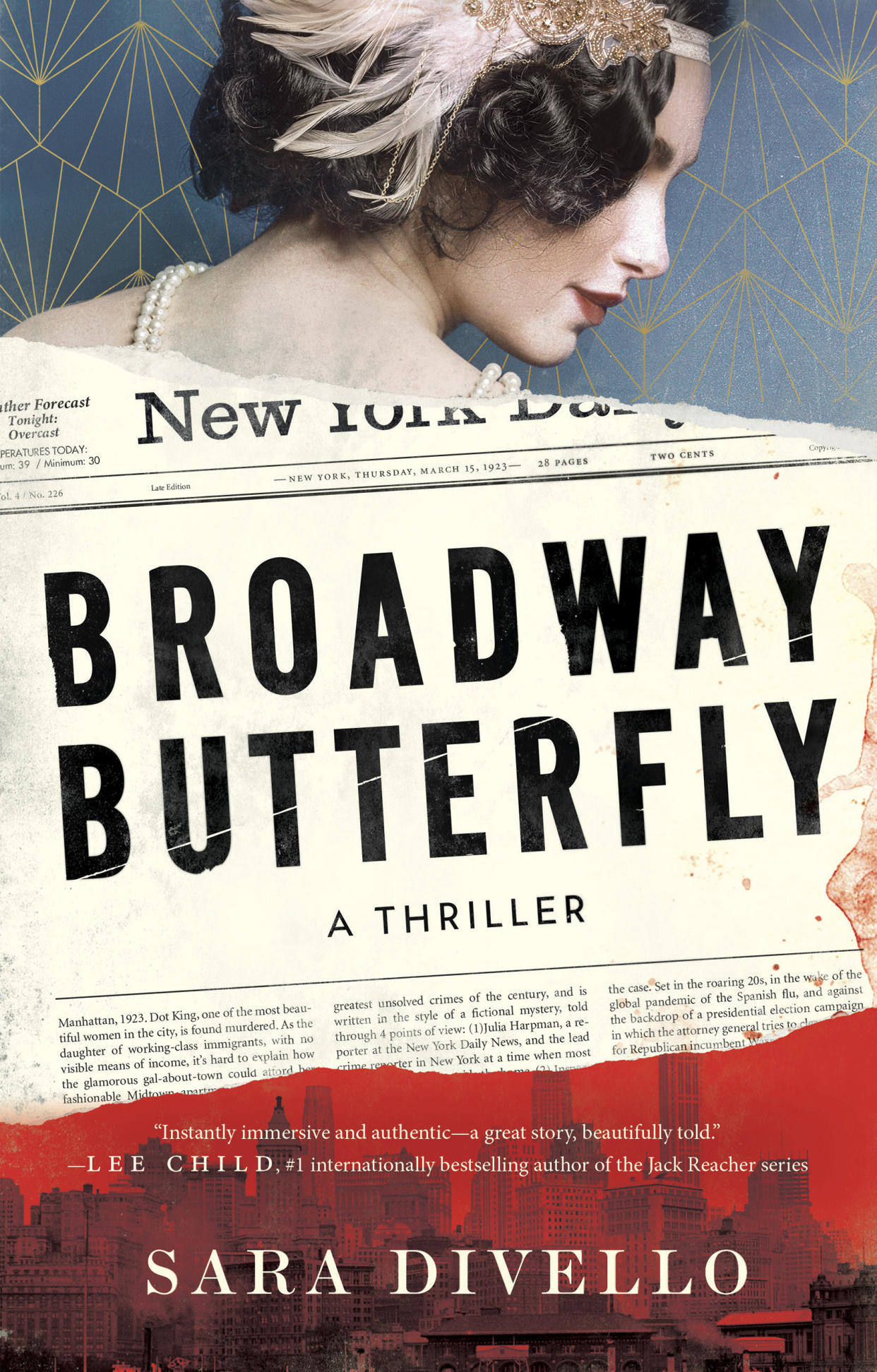Book Review: True crime meets history in Sara DiVello's 1920s murder mystery 'Broadway Butterfly'

“Broadway Butterfly” by Sara DiVello (Thomas & Mercer)
The unsolved murder of the beautiful Dot King captivated New York. But the hype around the case proved insufficient motivation to catch the killer. So what happened?
In “Broadway Butterfly,” a jazzy true crime historical thriller, author Sara DiVello unearths piles of evidence and presents them through witnesses, detectives and journalists in an attempt to find out what happened to the fast-living, generous and ambitious young woman whose life was suddenly and mysteriously snuffed out.
All third person limited, the chapters go around between reporter Julia Harpman, inspector John D. Coughlin, and Dot’s maid and confidant Ella Bradford. Each takes on their own lexicon for a personal feel of character — Julia is obsessed with reporting and the hustle of being a pioneer newspaperwoman, and sees herself as a righteous champion of women. Coughlin is a hardened policeman whose preconceived ideas of others are solidified, and he’s constantly surprised at “girls these days” living and traveling alone, and at Broadway women’s apparent lack of moral values. Ella came from the South and, while she sees more opportunity and less overt racist violence and segregation in New York, is well aware of the dangers she and her family face simply by her connection with a murdered white woman.
Then there’s Frances Stotesbury Mitchell, a high society woman with equally high connections getting ready to host the scandal-ridden President Warren G. Harding in Palm Beach ahead of his renomination. For those not already familiar with the history, it’s not until about a third of the way through “Broadway Butterfly” that it becomes clear why her narrative is woven into the broader story at all. Then, it becomes integral.
Julia herself notes early on that people have a way of seeing themselves as a hero — a forecast of her own hubris. The Julia chapters always paint her as chasing justice, and she excuses occasional sensationalizing as necessary to keep the Dot King case on the front page, therefore making it more likely to get solved. “The singular life of a reporter” becomes her refrain. But time and again other characters read her words and reveal that, in practice, she isn’t the champion of women that her internal narrative makes her out to be.
So many things muddy the investigation: newbies on the force who make rookie mistakes, oldies who make assumptions, bad interrogation techniques, raw deals, classism, racism, sexism, and flat-out corruption. DiVello captures it all, revelations unfolding one by one as tips roll in from sources and shady deals are made, replete with all the ′20s slang and swanky synonyms a person could hope for, and smoking everywhere all the time. The tone is precise and transportive.
DiVello also has some fun with it, like when the inspector pointedly tells Julia that this is a murder investigation, not a detective novel. At once a jab at the character’s lust for front-page space, it’s also a self-aware criticism of true crime and, therefore, the author herself. DiVello's passion for the genre is evident both in the writing and by her role as creator and host of a mystery and thriller podcast.
The end result is a fascinating murder mystery packed with history. However, its repetitiveness presents a sticking point. While it underscores characters, it undermines the pacing. The book feels unnecessarily long. Still, “Broadway Butterfly” is an enjoyable read loaded with factoids I might never have been aware of otherwise.

